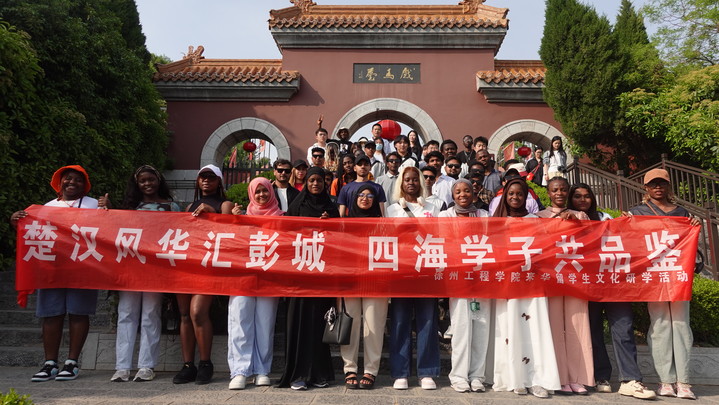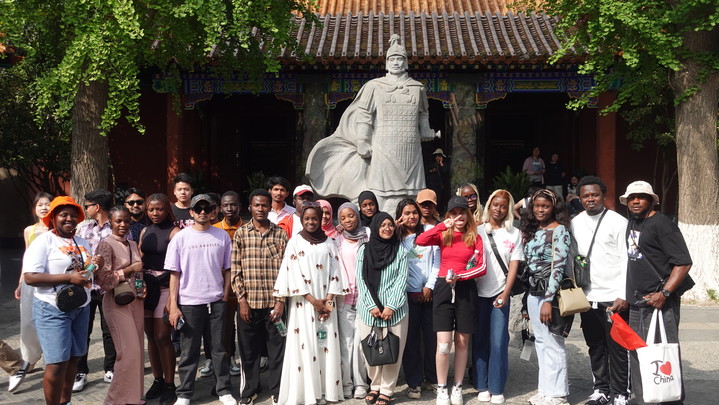Xuzhou University of Technology concludes International Chinese Language Day Cultural Events
To promote cultural exchange between China and other countries and help international students deeply experience the charm of traditional Chinese culture, Xuzhou University of Technology specially planned a month-long cultural series, "Perceiving China: A Cultural Journey", which has now concluded successfully. Over a hundred international students from more than 30 countries immersed themselves in Chinese culture through a series of activities featuring traditional Chinese elements. Through interaction and hands-on practice, they felt the profound depth of Chinese civilization.
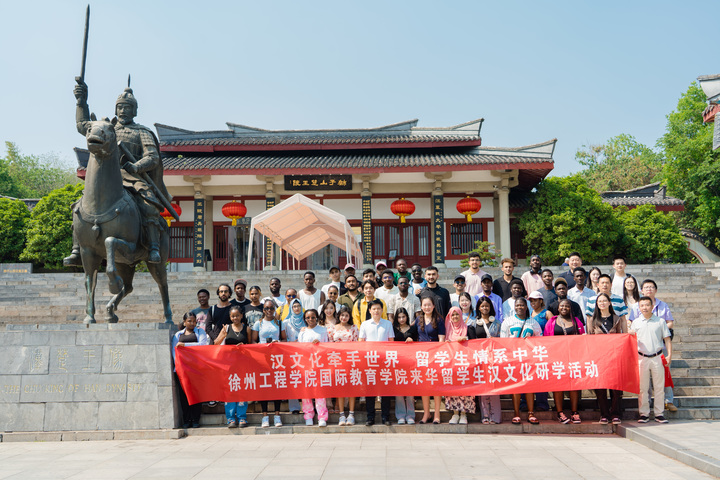
Study Tour at Ximatai Guiding International Students into Chu-Han Culture
International students stepped into Ximatai (Horse-Training Terrace), one of Xuzhou's historic landmarks known as the "Seven Miles of Pengcheng", and were instantly captivated by the profound culture of the Chu and Han dynasties. Immersed in the long history of the era, they paused before the statue of Xiang Yu, the Hegemon-King of Western Chu, and listened attentively as professional guides vividly explained historical stories such as "Farewell My Concubine", "Autumn Wind and Horse-Training" and "Establishing the Capital at Pengcheng". The students expressed awe at the heroism of the Chu figures. Every brick and tile at Ximatai served as a living cultural lesson, allowing them to sense the millennia-old cultural legacy of Pengcheng—one of the nine ancient regions of China—and truly grasp the continuity of Chinese civilization. They shared that this study of Chu-Han culture deepened their understanding and appreciation of its unique charm and rich historical heritage, fostering greater respect for Chinese history and a stronger desire to learn about China.
Mugwort Hammer Event on Qingming Festival Helping International Students Experience Intangible Cultural Heritage
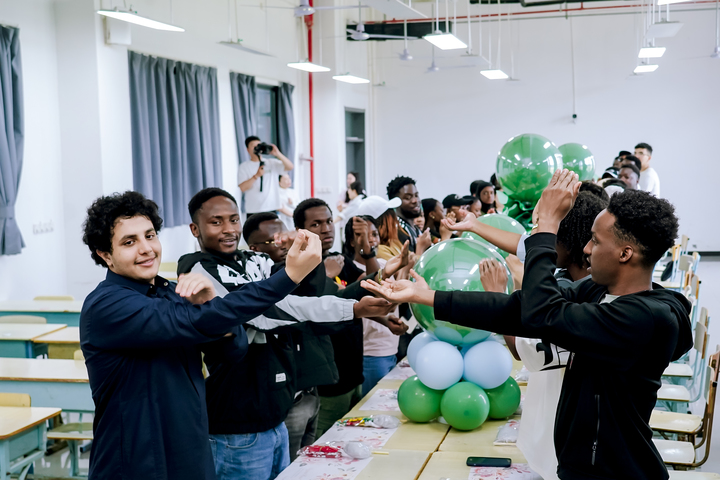
Under the guidance of professional instructors, international students learned about the unique properties of mugwort (ài cǎo) in traditional Chinese medicine. The event space filled with the herb's distinctive fragrance, energizing the participants as they carefully wrapped dried mugwort leaves into cotton cloth, shaping them into delicate hammer-like tools. By crafting these "mugwort hammers" themselves, the students not only mastered the technique but also glimpsed the vastness of traditional Chinese medicine culture. They experienced the practical value of Chinese medicine in daily life and felt the unique charm of intangible cultural heritage. Bakar from Chad, holding his newly made mugwort hammer, exclaimed, "This experience sparked a strong interest in traditional Chinese medicine. I want to bring this knowledge home to share its wonders with my family."

Chess Friendship Tournament Bridging Wisdom and Connecting Friendship among International Students
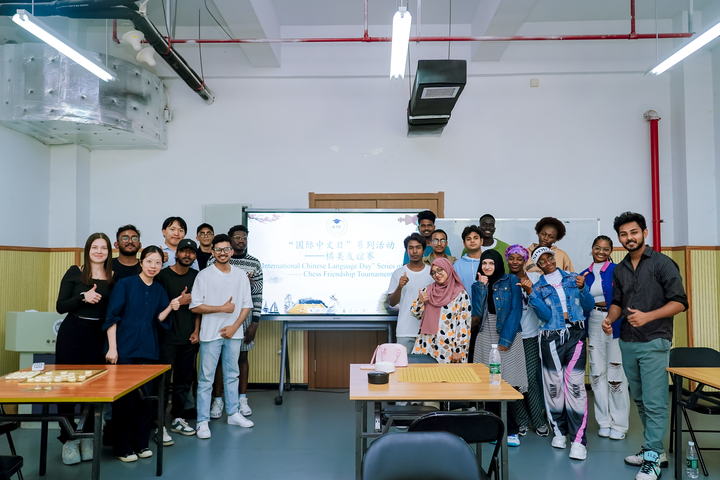
Chess cultures—including international chess, Chinese chess (xiàng qí), Go (wéi qí), and Gomoku—each have distinct rules and philosophies. At the event, international students enthusiastically immersed themselves in learning strategies and techniques, focusing intently as they made careful moves and enjoyed the intellectual thrill of these games. This became a cross-border battle of wits. At the Chinese chess tables, students faced off across the "Chu River and Han Boundary" (chǔ hé hàn jiè); in the Go zone, they studied the "Great Skim (dà fēi) Corner Enclosure". The symbolism of Chinese chess—its river boundary, diverse pieces, and tactical depth—and the monochrome world of Go, with its emphasis on spatial strategy and endgame precision, deeply impressed the students with the wisdom and philosophy embedded in Chinese tradition. "Chinese chess is completely different from international chess! Learning it helped me understand ancient Chinese military and culture—I've totally fallen for this traditional game!" exclaimed Vanya from Belarus. Through spirited matches, the students not only improved their skills but also gained a deeper appreciation for the intellect and philosophy within Chinese culture, strengthening their affection for it.
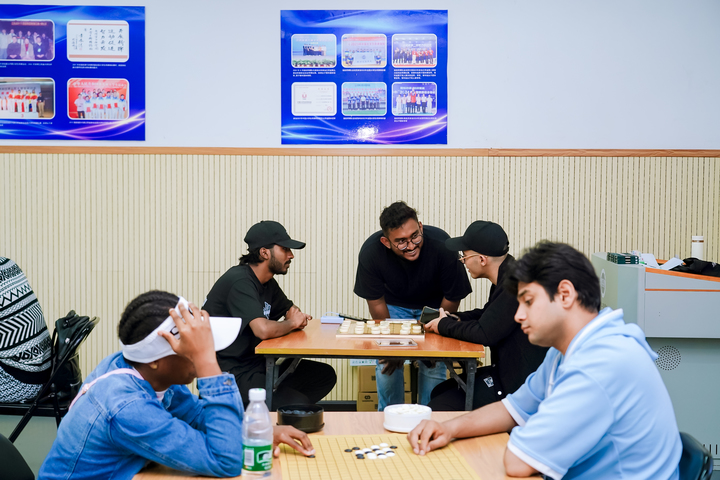
Han Dynasty Cultural Study Tour Leading International Students into Highlighting History of Xuzhou
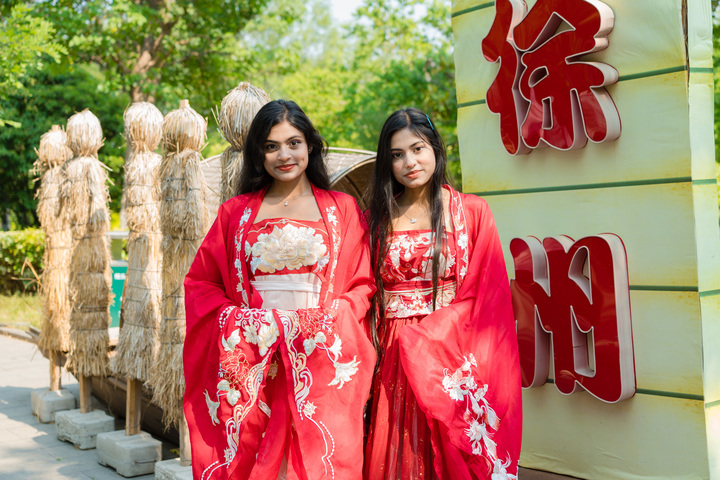
The Han Dynasty cultural study tour was a highlight of the series. Entering the Mausoleum of the Prince of Chu and the site of the Han Terracotta Warriors, the students were awestruck by the sights before them. Professional guides explained the grandeur of Han tomb structures, the majestic terracotta army formations, and the exquisite craftsmanship of bronze and jade artifacts—testaments to the dynasty's prosperity and artistry—allowing them to touch a glorious history 2,000 years old. The immersive activities were particularly thrilling: some students wore elegant Hanfu robes, others donned warrior armor, experiencing the charm of traditional attire firsthand. They tried ancient games like touhu (pitch-pot) and archery, channeling the wisdom and joy of the past. Under expert guidance, they created rubbings of Han-era patterns, preserving unique "Han cultural memories". The tour deepened the students' understanding and interest in traditional Chinese culture—especially Han history and arts—fostering friendship through interactive learning and empowering them as cultural ambassadors. As the birthplace of Han culture, Xuzhou not only showcased the splendors of this heritage but also highlighted its own distinctive charm.
Zongzi Wrapping Event Filling Chinese & International Students with Deep Connotations of Culture Symbol
As the Dragon Boat Festival approached, the cultural immersion continued with a special joint "zongzi-making" event alongside Chinese students, filling the venue with joy and enthusiasm. Students gathered to learn about the festival's origins and customs, then tried their hands at wrapping these traditional sticky rice dumplings. Working side by side, they helped each other select bamboo leaves, fill them with glutinous rice and fillings, then wrap and tie them—each step brimming with laughter and cultural exchange. While learning, they shared festive traditions from their home countries, creating a lively, cross-cultural atmosphere. Though their first attempts were clumsy, the spirit of collaboration shone through. Amidst the aroma of zongzi, international students felt the cultural significance of the Dragon Boat Festival—its themes of homeland, family, and humanistic spirit—and experienced the warmth of cultural exchange.
Through this series, international students were engaged with Chinese tradition up close, stepping out of textbooks into the real world of Chinese culture. Each activity brought surprises and moved them deeply. The International Chinese Language Day cultural series not only enhanced their understanding and appreciation of Chinese culture but also promoted exchange and integration among cultures from different countries and regions, building bridges of cultural dialogue. The students expressed a strong desire to participate in more such activities in the future, hoping to deepen their knowledge of Chinese culture and become ambassadors of cross-cultural exchange.
